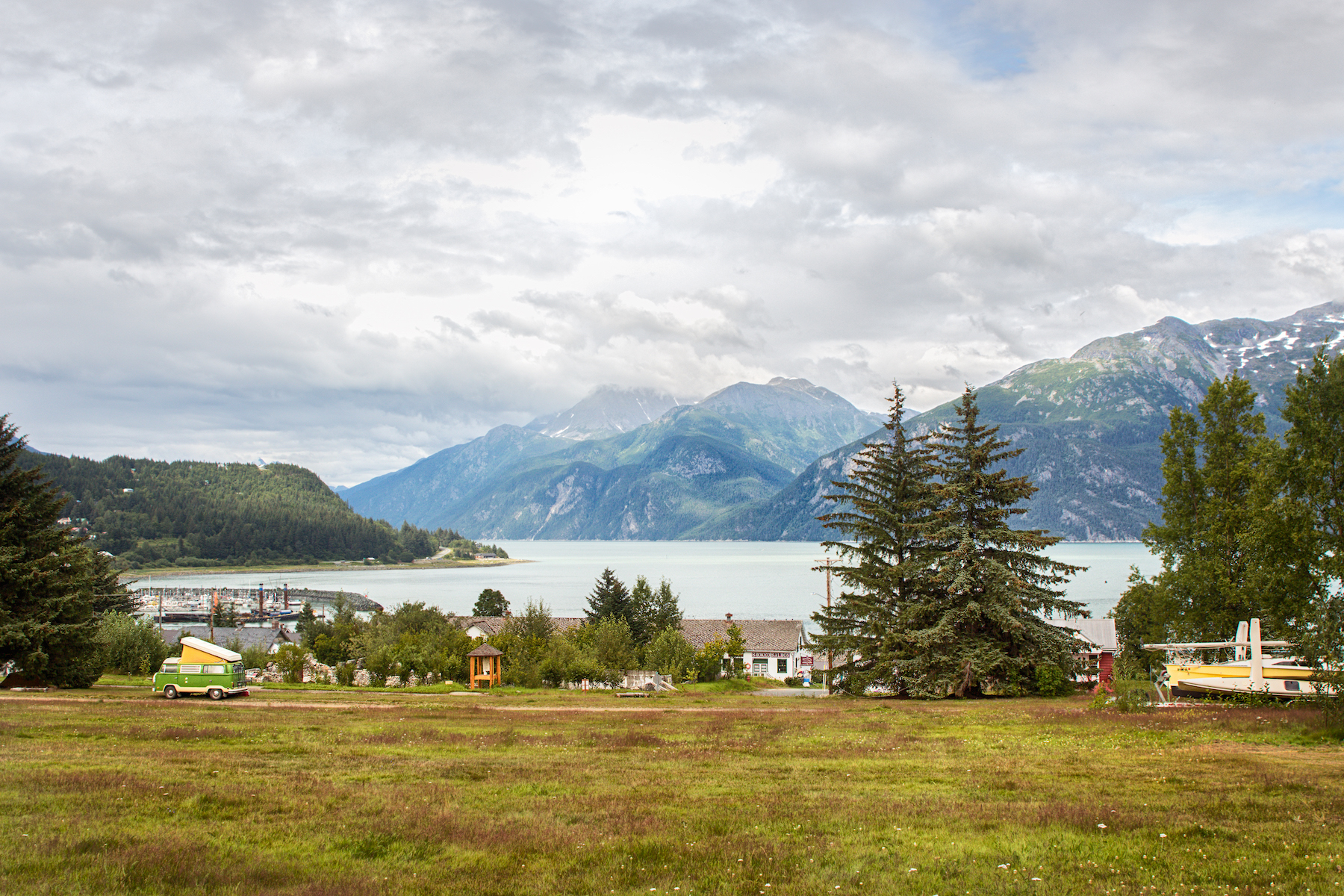
Alaskan coastal Indigenous communities are facing severe environmental changes that threaten to irrevocably damage their way of life. A $3 million grant from the National Science Foundation (NSF) will allow Penn State researchers to assist local communities with foreseeable environmental challenges and work towards building more resilient communities.
The project, “Pursuing Opportunities for Long-term Arctic Resilience for Infrastructure and Society,” or POLARIS, is funded through NSF’s new "Navigating the New Arctic" program, which will establish a network of platforms and tools across the Arctic to document and understand the Arctic's rapid biological, physical, chemical and social changes.
According to principal investigator Guangqing Chi, associate professor of rural sociology and demography and public health sciences in the Department of Agricultural Economics, Sociology, and Education, it is estimated that Arctic Alaskan temperatures are rising two to three times faster than in the mainland United States.
“Together with permafrost thawing, sea levels rising, and declining sea ice cover, extreme storms are rapidly eroding some Alaskan coasts and damaging community infrastructure, livelihoods and cultural heritage,” he said. “The rising temperatures are also causing sea ice to melt, disrupting marine food chains that many rural Alaskan communities rely on.”
Chi, who also serves as director of the Computational and Spatial Analysis Core of the Population Research Institute and Social Science Research Institute at Penn State, said another complication is that existing research is piecemeal.
“A holistic picture of coastal communities has not been developed, nor are ways to effectively address the complex and interconnected problems communities face," he said. "Solutions will require a transdisciplinary, convergent approach where researchers from different disciplines collaborate to create new knowledge beyond discipline-specific perspectives.”
The POLARIS project includes three pillars to guide research efforts: the study of community disruptors due to environmental change; food in complex adaptive systems; and migration and community relocation. The three research pillars will be interwoven with education, outreach, community engagement, international collaboration, and evaluation.
POLARIS brings together researchers from multiple fields with local community members to conduct the study. The research team integrates demography, economics, sociology, environmental science, anthropology, Indigenous knowledge, food nutrition, and ecology to create innovative partnerships and discussions. The team is comprised of over 20 collaborators from Penn State; University of Alaska Anchorage; University of Alaska Fairbanks; Michigan Technological University; Ukpeavik Iupiat Corporation Science, Alaska; University of Guelph, in Ontario, Canada; University of Leeds, England; and Alaska government agencies.
Co-principal investigator, Ann Tickamyer, professor of rural sociology, brings expertise in social and demographic processes to the project, and is eager to extend research on how “gender roles, relations, and divisions of labor relate to individual, family and community reactions, decisions and resilience to disaster and climate change in this environment.”
The researchers will begin to analyze publicly available data such as from the Census Bureau and existing surveys of local communities and also collect new data via POLARIS surveys. The data will help the researchers identify how communities can become more resilient to change and help them adapt through outreach engagement.
According to co-principal investigator Davin Holen, coastal community resilience specialist with the Alaskan Sea Grant at the University of Alaska Fairbanks, the researchers will work directly with the communities to facilitate the research, as well as to conduct outreach and tell the stories of community resilience from community perspectives.
“I’m a social scientist who spent the first part of my career researching economies in Alaska, including documenting customary and traditional harvesting practices and the importance of subsistence to cultural continuity," said Holen. "For this project, I will be working with communities to do climate adaptation planning and to build better community resilience.”
In addition, local educators will work with the communities to develop classroom tools to engage students in K-12 settings. POLARIS also will train junior researchers, graduate students and undergraduate students in interdisciplinary research as they participate in work across the research pillars and five components.
“This will ensure that the rising generation of researchers is well prepared to continue the crucial work to address these issues,” Chi said.
“Ultimately, the project is aimed at synthesizing possible ‘navigation pathways’ for communities as they adapt to rapidly changing social and environmental systems,” said team member Erica Smithwick, professor of geography and associate director of the Institutes of Energy and Environment at Penn State.
Other Penn State researchers include Bronwen Powell, College of Earth and Mineral Sciences; Kathleen Hill, College of Education; Junjun Yin, Social Science and Population Research Institutes; and Douglas Wrenn and Leif Jensen, College of Agricultural Sciences.
Other co-principal investigators on the project are Elbert Howe, associate professor of economics at the University of Alaska Anchorage, and Christopher Maio, associate professor of geography at the University of Alaska Fairbanks.
Additional support for the project is being provided by Penn State’s Social Science Research Institute, the Institutes of Energy and the Environment, the College of Agricultural Sciences and the College of Earth and Mineral Sciences.